Thrive Research Team
Principle Investigator: Dr. Pam King
Funded By
John Templeton Foundation, Thrive Foundation for Youth
Project Overview
Given the rapid and major physiological changes during adolescence, teenagers grow in their curiosity and capacities to experience and understand transcendence. While their social worlds begin to expand beyond the family, so do their beliefs and sense of belonging, leading to exploration and the development of meaning, identity, and purpose. The Thrive Lab continues a long history of exploring the nature and function of spiritual development during adolescence. In particular we have explored influences on spiritual and religious development; the ideological, social, and transcendent resources available within religion and spirituality; and thriving outcomes related to adolescent religiousness and spirituality.
Continue Exploring

Youth
“We are Protected”: Examining youth perceptions of safety
“We are Protected”: Examining youth perceptions of safety within a faith-based positive a faith-based positive youth development program in El Salvador / Journal of Youth Development

Wellbeing
Religious involvement in adolescence
Citation Vaughn, J. M., & King, P. E. (2024). Religious involvement. In Encyclopedia of Adolescence (pp. 411–421). Elsevier. https://doi.org/10.1016/B978-0-323-96023-6.00002-6 Abstract Religion and spirituality are well-established contributors to adolescent well-being and development. Though efforts to identify the specific manners through which they may influence adolescents are ongoing, involvement in a religious congregation or community appears particularly beneficial. Religious involvement, which can take many forms, offers adolescents increased access to an abundance of resources – social, ideological, and transcendent. Accordingly, after describing trends in adolescent religiosity and religious involvement, we unpack what it means for an adolescent to be involved in their…

Meaning
Religion, Spirituality, and Youth Thriving: Investigating the Roles of the Developing Mind and Meaning-Making
Citation King, P. E., Mangan, S., & Riveros, R. (2023). Religion, Spirituality, and Youth Thriving: Investigating the Roles of the Developing Mind and Meaning-Making. In E. B. Davis, E. L. Worthington, & S. A. Schnitker (Eds.), Handbook of Positive Psychology, Religion, and Spirituality (pp. 263–277). Springer International Publishing. https://doi.org/10.1007/978-3-031-10274-5_17 Abstract In this chapter, we draw on positive developmental psychology, psychology of religion and spirituality, and developmental neuroscience to explore how youth religiousness and spirituality contribute to thriving through the process of meaning-making. Thriving involves the individual, relational, and aspirational development necessary to pursue a life purpose that is meaningful to…

Thriving
Hindsight in the 2020’s: Looking back and forward to positive youth development and thriving
Citation King, P. E., & Mangan, S. (2023). Hindsight in the 2020s: Looking back and forward to positive youth development and thriving. In L. J. Crockett, G. Carlo, & J. E. Schulenberg (Eds.), APA handbook of adolescent and young adult development (pp. 609–627). American Psychological Association. Abstract Positive youth development (PYD) started as a field of practice before it became a field of study. With a heightened awareness of the necessity of a framework for the thriving of all youth and all societies, the chapter considers the purpose of PYD and consequently revisits the concept of teleology, offering a revised understanding…

Spirituality
La spiritualité comme boussole : accompagner les jeunes vers l’épanouissement
Citation Ebstyne King, P., & Tiret, F. (2022). La spiritualité comme boussole: Accompagner les jeunes vers l’épanouissement: In Les spiritualités dans le travail socio-éducatif (pp. 91–116). Érès. https://doi.org/10.3917/eres.verba.2022.01.0091 Abstract As our world and cultures change radically, many conventional civil, social and religious institutions that served to forge social bonds in the Western world are eroding. Digital platforms such as Facebook, Snapchat and Instagram are poised to represent the authority figure, a role previously reserved for embodied organizations. Due to this development, young people grow up with networks where honesty, convictions, respect for privacy, responsibility and support are often lacking. Consequently,…

Hope
Agentic and Receptive Hope: Understanding Hope in the Context of Religiousness and Spirituality through the Narratives of Salvadoran Youth
Citation Vaughn, J. M., King, P. E., Mangan, S., Noe, S., Hay, S., O’neil, B., … & Sim, A. T. R. (2022). Agentic and receptive hope: Understanding hope in the context of religiousness and spirituality through the narratives of Salvadoran youth. Religions, 13(4), 376. Abstract Hope contributes to positive development in adolescents, and religious and spiritual contexts may be particularly important for developing and supporting hope. However, extant literature on hope, religion, and spirituality neglects their synergistic relation, leaving questions about how they work together to support development. In this study, we explore how religiousness and spirituality (R/S) inform hope…

Spirituality
Developmental Perspectives on Adolescent Religious and Spiritual Development
Citation King, P. E., Hardy, S. A., & Noe, S. (2021). Developmental perspectives on adolescent religious and spiritual development. Adolescent Research Review, 6(3), 253-264. Abstract Despite the prevalence of religiousness and spirituality among adolescents, little is known about the psychology of adolescent religious and spiritual development. The purpose of this article is to explain how scholars within the discipline of developmental psychology have begun to approach the topic. Specifically, the article details how developmental theory advances understanding of religious and spiritual development and overviews developmental methods that enable rigorous examination of the structure and function of adolescent religious and spiritual…

Spirituality
Evaluating the measure of diverse adolescent spirituality in samples of Mexican and Salvadoran youth
Citation King, P. E., Yoo, Y., Vaughn, J. M., Tirrell, J. M., Geldhof, G. J., Iraheta, G., Williams, K., Sim, A., Stephenson, P., Dowling, E., Lerner, R. M., & Lerner, J. V. (2021). Evaluating the measure of diverse adolescent spirituality in samples of Mexican and Salvadoran youth. Psychology of Religion and Spirituality, 13(2), 246–253. https://doi.org/10.1037/rel0000279 Abstract This study examines the psychometric properties and applicability of the Measure of Diverse Adolescent Spirituality (MDAS), including the factors of transcendence and fidelity, across 2 samples of adolescent youth from low- and middle-income countries (Mexico and El Salvador). Drawing on relational developmental systems metatheory, spirituality is…

Joy
Purpose – Finding Joy in Life Direction
Citation King, P. E. & Argue, S. (2020). Purpose, Finding Joy in Life Direction. (Chapter and curriculum guide.) In D. White and S. Farmer (Eds). Joy: a Guide to Youth Ministry. Nashville: General Board of Higher Education and Ministry of the United Methodist Church. Abstract Published in cooperation with Yale University and taking cues from theologians such as Miroslav Volf and recent reflections on joy as the crown of the good life, this ecumenical group of contributors insists that reclaiming joy for youth ministry is crucial in light of modern secularism, which has eviscerated the world of such things as…
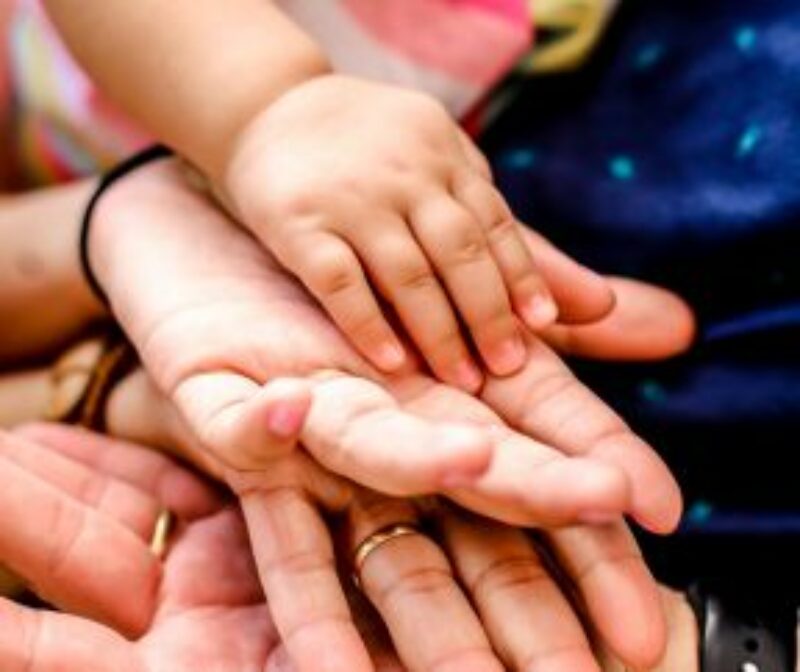
Youth
Toward a Measure for Assessing Features of Effective Youth Development Programs
Citation Tirell, J.M., Dowling, E.M., Gansert, P., Buckingham, M., Wong, C.A., Suzuki, S., Naliaka, C. Kibbedi, P., Namurinda, E., Williams, K., Geldhof, G.J., Lerner, J.V., King, P.E., Sim, A., & Lerner, R.M. (2019). Toward a measure for assessing features of effective youth development programs: Contextual safety and the “big three” components of positive youth development programs in Rwanda. Child & Youth Care Forum, 48(5), 1-22. Abstract Background When delivered in a safe space, programs effective in promoting positive youth development (PYD) involve key features termed the Big Three: (1) Positive and sustained adult–youth relationships; (2) Life-skill-building activities; and (3) Opportunities…

Spirituality
Religious groups and institutions as a context for moral development: Religion as fertile ground.
Citation King, P. E., Schnitker, S. A., & Houltberg, B. (2020). Religious groups and institutions as a context for moral development: Religion as fertile ground. Handbook of Moral Development (ed. L. Jensen). New York: Oxford University Press, 592-612. Abstract An extensive body of research points toward spirituality and religiousness as resources for promoting human thriving. People with strong connections to the transcendent and religious meaning in life often view morals and values as central to their self-concepts. Although moral identity theory and contemporary views of virtue development emphasize the importance of narrative identity for habituated moral action, the two are…
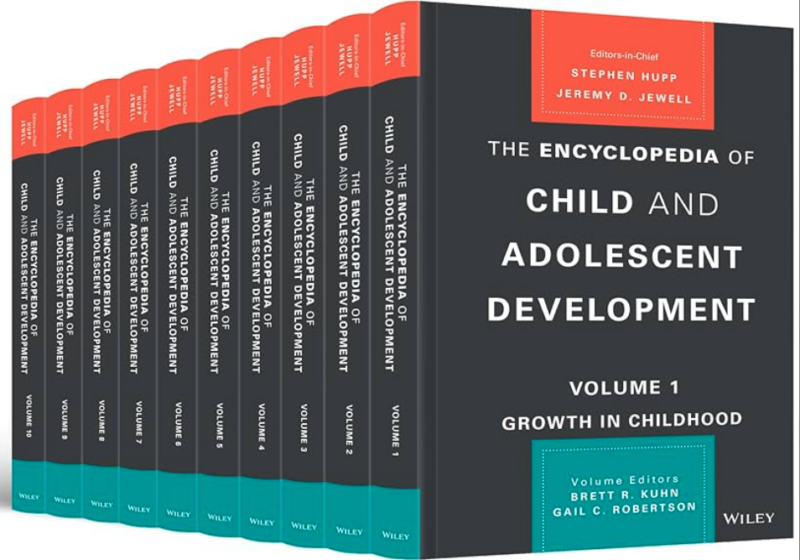
Spirituality
“Spirituality and Adolescent Development” in Encyclopedia of Child and Adolescent Development
Citation King, P. E., Vaughn, J. M., & Merola, C. (2020). Spirituality and adolescent development. In D. T. L. Shek & J. Leung (Eds.) Volume VII: History, Theory, and Culture. In S. Hupp & J. Jewell (Eds. in chief). Encyclopedia of Child and Adolescent Development. Wiley Blackwell. Abstract The Encyclopedia of Child and Adolescent Development presents the major theories, key concepts, disorders, and evidence-based practices of the field. Covering infancy through adolescence and emerging adulthood, this important work outlines major areas of research and examines specific topics, ongoing controversies, and current work being done by leaders in the field. The…

Spirituality
Processes of religious and spiritual influence in adolescence: A systematic review of 30 years of research
Citation Hardy, S. A., Nelson, J. M., Moore, J. P., & King, P. E. (2019). Processes of religious and spiritual influence in adolescence: A systematic review of 30 years of research. Journal of Research on Adolescence, 29(2), 254-275. Abstract This is a systematic review of 30 years (1988-2017) of empirical research on processes of religious/spiritual influence in adolescence. We followed a multi-step process that resulted in 241 studies organized according to eight research questions and the corresponding methods and analyses typically used to address them. We coded these studies based on the dimensions of religiosity/spirituality and the youth outcomes involved.…

Spirituality
Processes of Religious and Spiritual Influence in Adolescence: Introduction to a Special Section
Citation Hardy, S. A., & King, P. E. (2019). Processes of religious and spiritual influence in adolescence: Introduction to a special section. Journal of Research on Adolescence, 29(2), 244-253. DOI: https://doi.org/10.1111/jora.12509 Abstract This paper serves as the lead article introducing the special section of the Journal of Research on Adolescence focused on processes of religious and spiritual influence during adolescence. The purpose of the special section is to review prior theory and research on the processes by which religiosity and spirituality might influence youth outcomes, present original cutting-edge theory and research on processes of religious and spiritual influence, and point…

Spirituality
Religion, Spirituality, and Thriving: Transcendent Narrative, Virtue, and Lived Purpose.
Citation Schnitker, S. A., King, P. E., & Houltberg, B. (2019). Religion, Spirituality, and Thriving: Transcendent Narrative, Virtue, and Lived Purpose. In Hardy, S. & King, P. E. (eds.). Special section: Processes of religious and spiritual influence in adolescence, Journal of Research on Adolescence, 29(2), 276-290. Abstract A theory is proposed to explain how religion/spirituality (R/S) is related to positive youth development and thriving. The concept of telos is employed to define thriving as continued growth through strength-based living that leads to contributing to one’s communities and living out one’s ethical ideals. Virtue development is proposed as a primary process…

Christian
Religious and Spiritual Development
Citation King, P. E. & Boyatzis C. (2015). Religious and spiritual development. In M. E. Lamb & C. G. Coll (Eds.), Social and Emotional Issues (Vol. 3) of the Handbook of Child Psychology and Developmental Science (7th ed.). Editor-in-chief: R. M. Lerner. Hoboken, NJ: Wiley, p. 975-1021. Abstract Although religion and spirituality have long been an integral part of being human, this is the first empirical chapter to be included in the Handbook of Child Psychology. We examine major theoretical perspectives but emphasize the recent explosion of empirical findings on religion and spirituality in childhood and adolescence. Recognizing the centrality…

Youth
They do care: An interview with William Damon and Anne Colby on moral development
Citation Damon, W., Colby, A., & King, P. E. (2018). They do care: An interview with William Damon and Anne Colby on moral development. Journal of Moral Education, 47(4), 383-396. Abstract What follows is an interview with William Damon and Anne Colby, pioneers in the fields of moral psychology and education. Throughout their careers, they have studied, moral identity, moral ideals, positive youth development, purpose, good work, vocation, character development in higher education, and professional responsibility. In their words, they are interested in the ‘best of humankind’—not only the competencies, but also the character necessary for living a good life—not…
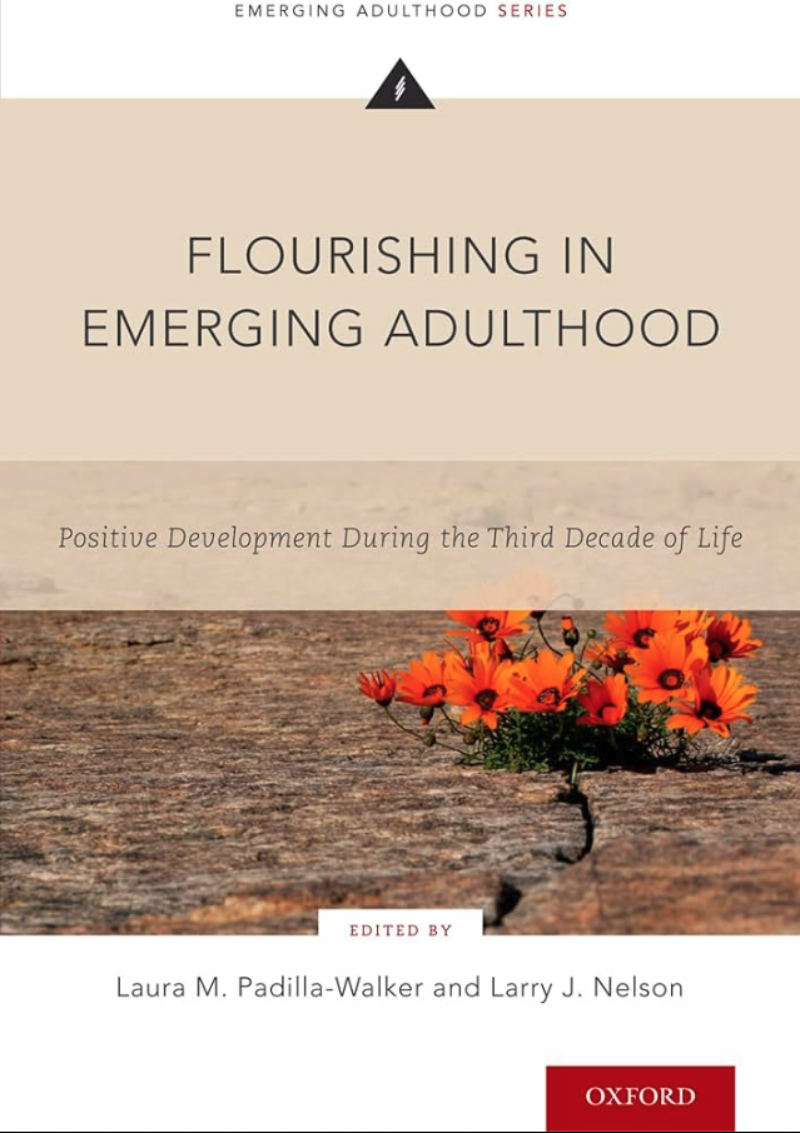
Practices
Crucibles of transformation: Religious service and emerging adults
Citation King, P. E., & Merola, C. M. (2017). Crucibles of transformation: Religious service and emerging adults. In L. M. Padilla-Walker & L. J. Nelson (Eds.), Flourishing in emerging adulthood: Positive development during the third decade of life (pp. 330–362). Oxford University Press. Abstract In the following chapter, participation in both structured and unstructured forms of religious service is presented as a crucible of transformation. Although most emerging adults are involved in exploratory activities, perhaps such experiences are not all as developmentally and socially productive as others. Based on the match between the developmental tasks of emerging adulthood and the…
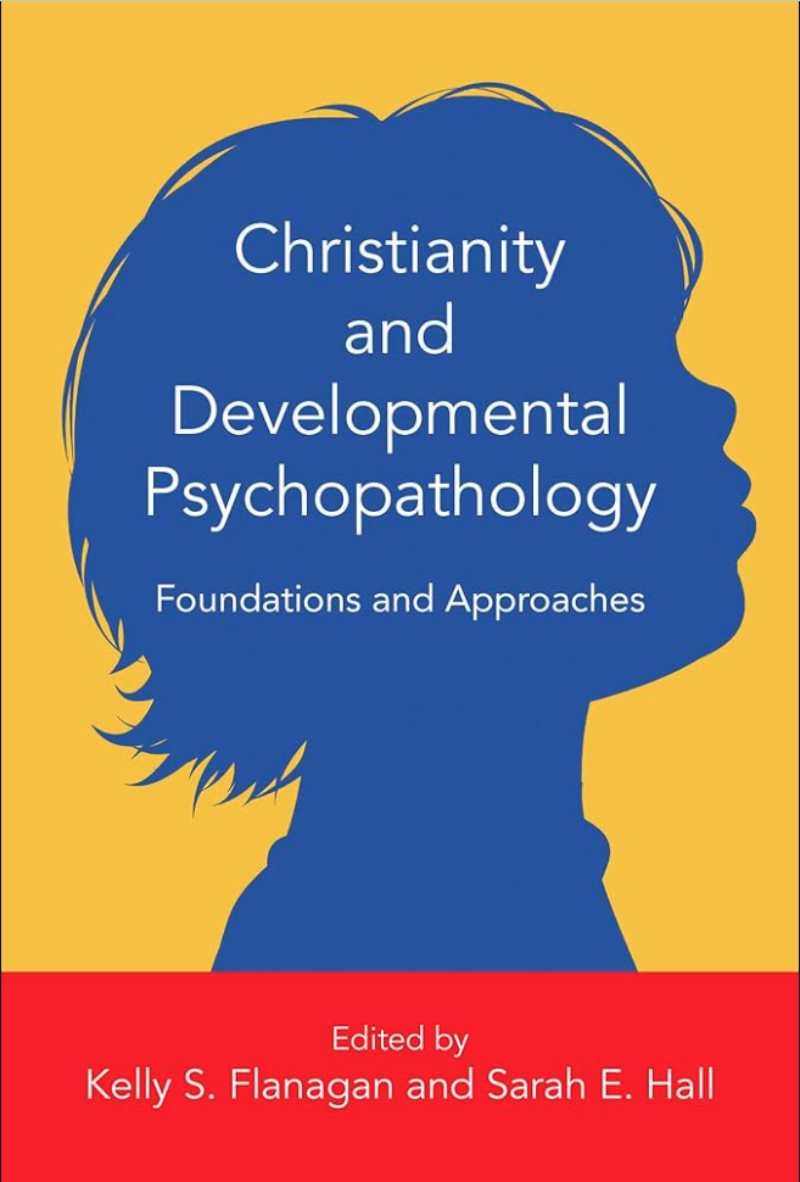
Thriving
Prevention and the promotion of thriving in children and adolescents
Citation King, P. E., & Clardy, C. E. (2014). Prevention and the promotion of thriving in children and adolescents. In K. S. Flanagan & S. E. Hall (Eds.), Christianity and developmental psychopathology: Theory and application for working with youth (p. 179-202). Naperville, IL; InterVarsity Press. Abstract Since its origin in the early 1980s, the field of developmental psychopathology has become a highly influential framework for approaching the clinical treatment of children. Until now there has been no effort to integrate this framework with a Christian understanding of psychopathology. The essays in this volume break new ground by providing Christian mental…

Spirituality
Purpose and Spirituality: Exploring the Role of Fidelity in Diverse Adolescents
Citation Carr, D. R. & King, P. E., Meier, A. M. (2014). Purpose and spirituality: Exploring the role of fidelity in diverse adolescents. Journal of Youth Development, 9(2), 5-15. Abstract Purpose is understood to reflect young people’s stable and generalized commitments to accomplish meaningful activity and contribute productively to society. Religion has been linked with purpose; however, the nature of this relationship is not well understood. Given that purpose and religion involve beliefs and devotion, the current study examined fidelity as a means of understanding this relationship in a group of religiously and culturally diverse youth from around the world.…
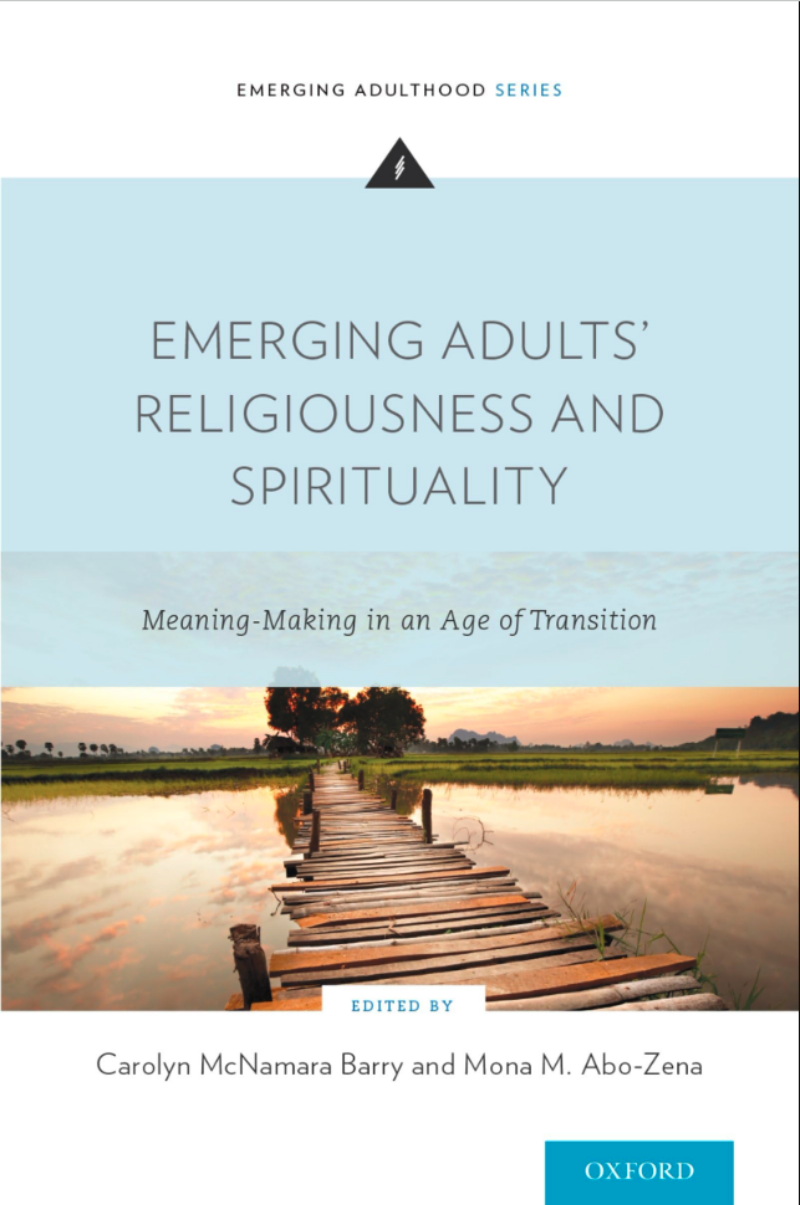
Spirituality
Religious Congregations and Communities
Citation Whitney, W., & King, P. E. (2014). Religious Congregations and Communities. In C. N. Barry & M. M. Abo-Zena (Eds.), Emerging adults’ religiousness and spirituality: Meaning-making in an age of transition. New York: Oxford University Press. Abstract Although most American children are raised in a faith tradition, by the time they reach their early twenties their outward religious expression declines significantly, with many leaving the faith in which they were raised in favor of another faith or none at all, though many still claim that religion and spirituality are important. Reasons for this change in religious behavior include adolescents’…

Spirituality
Searching for the sacred: Religion, spirituality, and adolescent development.
Citation King, P. E., Ramos, J. S., & Clardy, C. E. (2013). Searching for the sacred: Religion, spirituality, and adolescent development. In K. I. Pargament, J. J. Exline, & J. W. Jones (Eds.), APA handbook of psychology, religion, and spirituality (Vol. 1): Context, theory, and research (pp. 513–528). American Psychological Association. Abstract This chapter provides an overview of the nature and function of religion and spirituality in the lives of diverse adolescents. The chapter addresses religion and spirituality from two perspectives. First, religious and spiritual development (RSD) are described as unique domains of human development; we explore how young people…

Youth
Religious & spiritual development in diverse adolescents
Citation King, P. E., Ramos, J. S., & Clardy, C. E. (2010). Religion & spirituality in diverse adolescents. In D. P. Swanson, M. C. Edwards, & M. B. Spencer (Eds.), Adolescence: Development during a global era (pp. 415-446). Amsterdam: Elsevier Press. Abstract This edited textbook will be appropriate for use in advanced undergraduate and graduate level courses and will serve as a comprehensive and timely introduction to the field of adolescent development, providing students with a strong foundation for understanding the biological, cognitive and psychosocial transitions occurring during adolescence. While certain normative biological and cognitive processes are relevant for all…
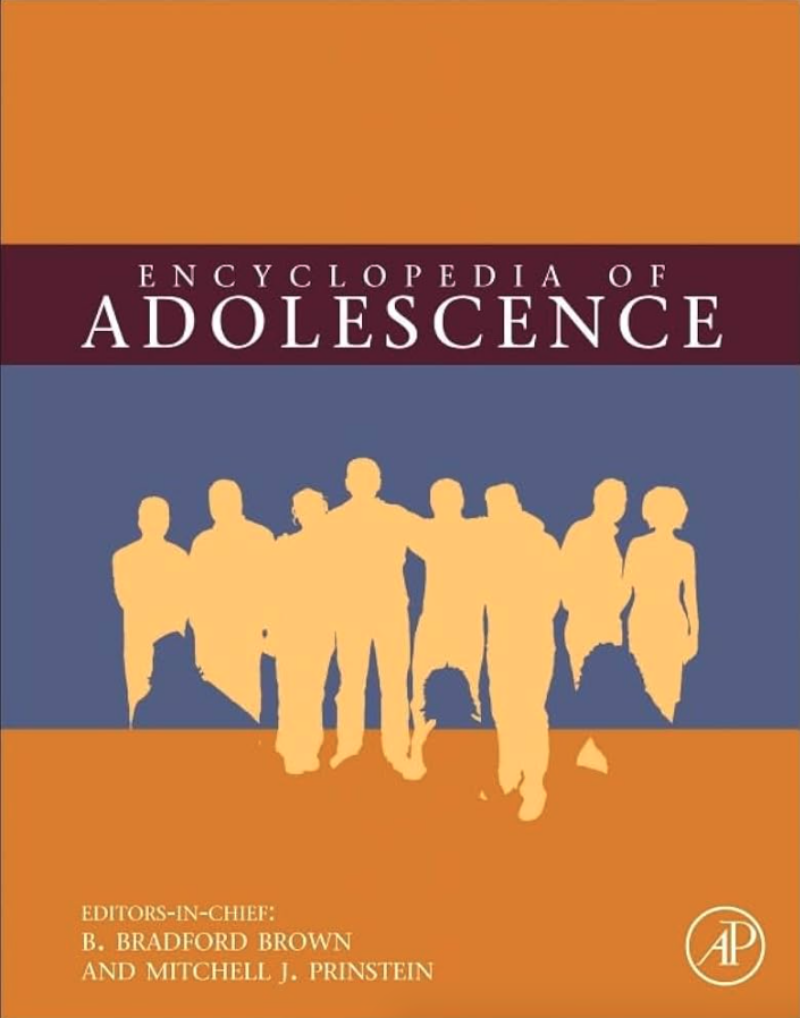
Practices
Religious Involvement
Citation Clardy, C. E., & King, P. E. (2011). Religious Involvement. In B. Brown & M. Prinstein (Eds.), Encyclopedia of adolescence. Amsterdam: Elsevier Press. Copyright Year: 2011 Holder: Elsevier Inc. DOI: https://shop.elsevier.com/books/encyclopedia-of-adolescence/brown/978-0-12-373915-5#full-description…
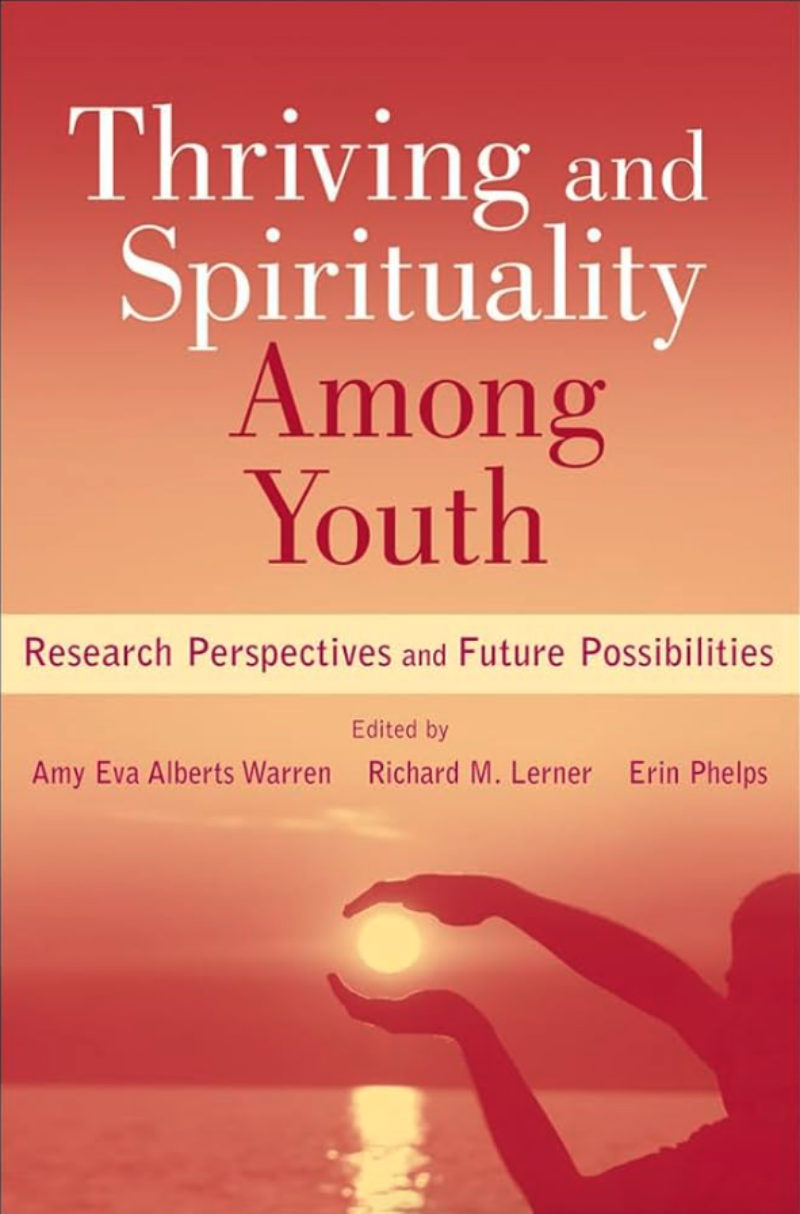
Spirituality
Afterword: Where do we go from here?
Citation King, P. E. (2011). Afterword: Where do we go from here? In A. Warren, R. M. Lerner, and E. Phelps (Eds.), Thriving and spirituality among youth: Research perspectives and future possibilities. Hoboken, NJ: John Wiley & Sons. Copyright Year: 2011 Holder: Wiley & Sons, Inc DOI: https://doi.org/10.1002/9781118092699.after…

Spirituality
Religion, Spirituality, Positive Youth Development, and Thriving
Citation King, P.E., Carr, A. & Boitor, C. (2011). Religion, Spirituality, Positive Youth Development, and Thriving. In R. M. Lerner, J. V. Lerner, and J. B. Benson (Eds.), Advances in Child Development and Behavior: Vol. 41. Positive youth development: Research and applications for promoting thriving in adolescence. Amsterdam: Elsevier Press. Abstract Issues of spirituality and thriving are pertinent to the period of adolescence given the marked changes in body, mind, and relationships. In order to provide an overview of the relationship between religion, spirituality, and positive youth development, this chapter offers a developmental systems perspective and proposes a relational spirituality…
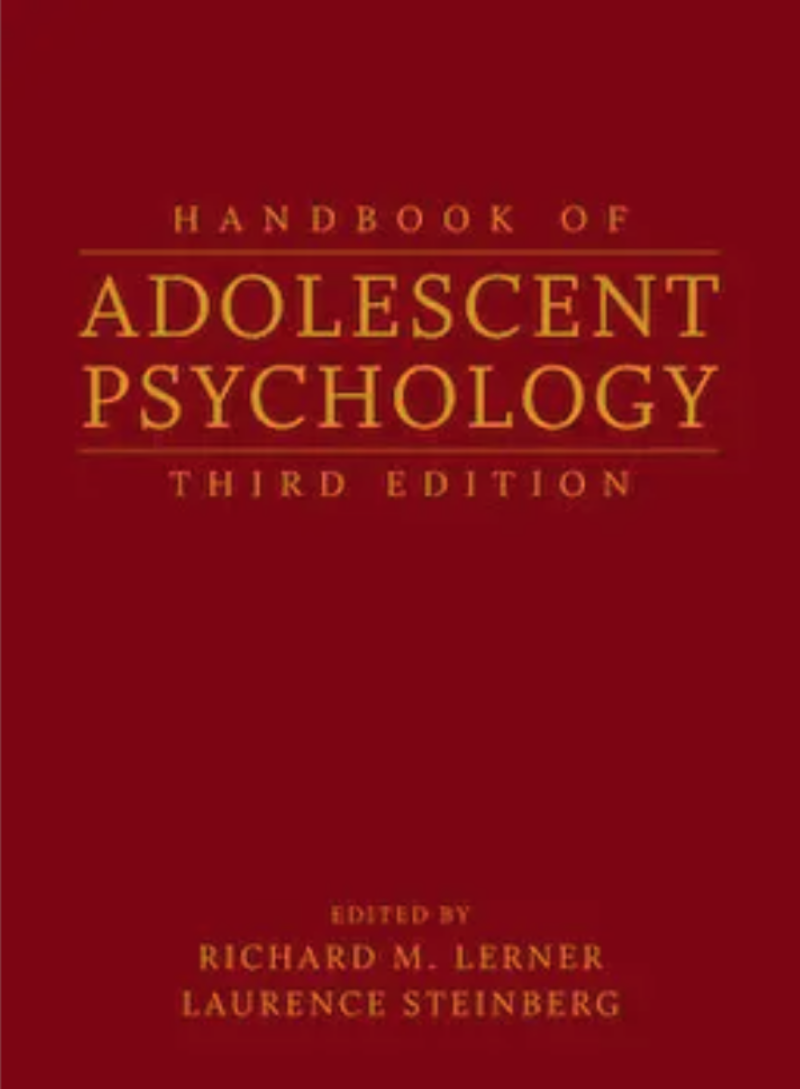
Spirituality
Religion and spirituality in adolescent development
Citation King, P. E., & Roeser, R. W. (2009). Religion and spirituality in adolescent development. In R. M. Lerner, & L. Steinberg (Eds.), Handbook of Adolescent Psychology: Vol. 1. Individual bases of adolescent development (3rd ed.) (pp. 435-478). Hoboken, NJ, US: John Wiley & Sons Inc. Abstract The study of and interest in adolescence in the field of psychology and related fields continues to grow, necessitating an expanded revision of this seminal work. This multidisciplinary handbook, edited by the premier scholars in the field, Richard Lerner and Laurence Steinberg, and with contributions from the leading researchers, reflects the latest empirical…

Youth
Religion as a resource for positive youth development: Religion, social capital, and moral outcomes
Citation Ebstyne King, P., & Furrow, J. L. (2008). Religion as a resource for positive youth development: Religion, social capital, and moral outcomes. Psychology of Religion and Spirituality, S(1), 34–49. Abstract This reprinted article originally appeared in Developmental Psychology, 2004, Vol 40[5], 703-713. (The following abstract of the original article appeared in record 2006-20488-023.) Although existing literature demonstrates that developmental benefits are associated with religion for adolescents, little is understood about the dynamics of this relationship. Drawing on social capital theory, this study tested a conceptual model exploring socially embedded religious influences on moral outcomes. A three-dimensional model of social…

Spirituality
Spirituality as fertile ground for positive youth development
Citation King, P. E. (2008). Spirituality as fertile ground for positive youth development. In R. M. Lerner, R. W. Roeser, & E. Phelps (Eds.), Positive youth development and spirituality: From theory to research (pp. 55-73). West Conshohocken, PA, US: Templeton Foundation Press. Abstract Bringing together a never-before-assembled network of biologists, psychologists, and sociologists, Positive Youth Development and Spirituality scientifically examines how spirituality and its cultivation may affect the positive development of adolescents. Chapters provide groundbreaking new discussions of conceptual, theoretical, definitional, and methodological issues that need to be addressed when exploring the relationships between spirituality and development. Throughout the book,…
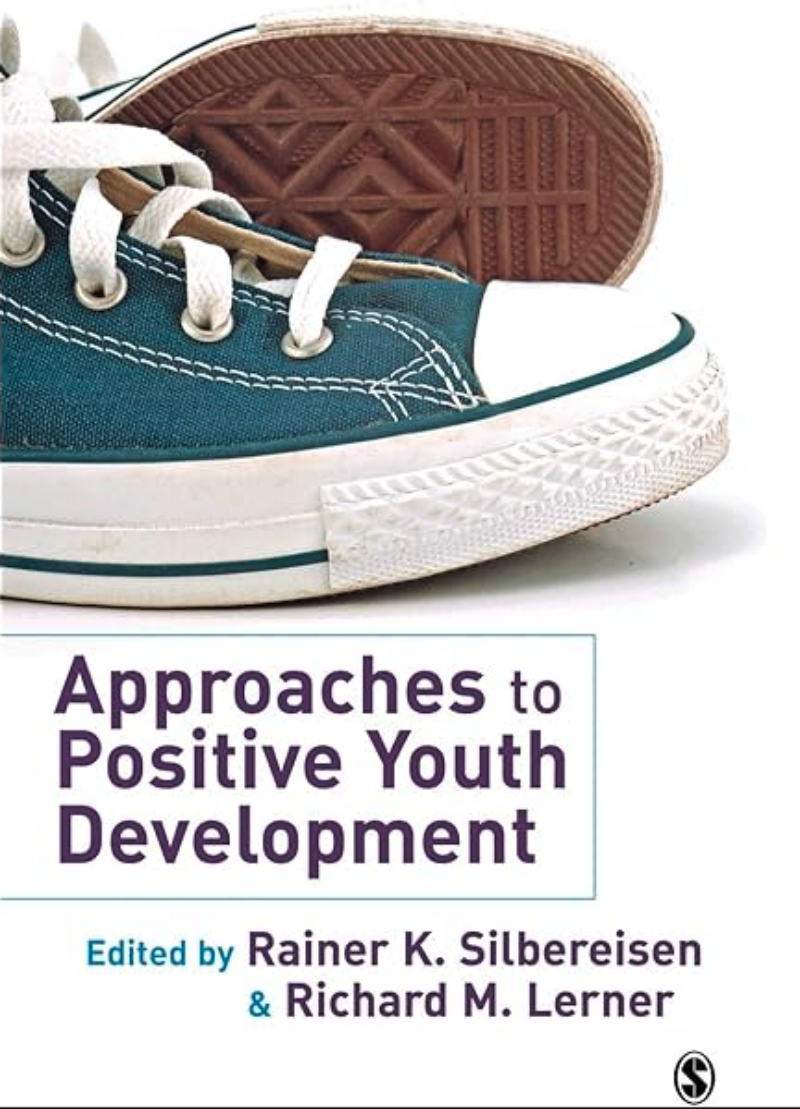
Spirituality
Adolescent Spirituality and Positive Youth Development: A Look at Religion, Social Capital, and Moral Functioning
Citation King, P. E. (2007). Adolescent Spirituality and Positive Youth Development: A Look at Religion, Social Capital, and Moral Functioning. In Silbereisen, R., & Lerner, R. (2007). Approaches to Positive Youth Development (pp. 227-242). SAGE Publications Ltd. Abstract Scientific research and science-guided practice based on the promotion of an individual’s strengths constitute a radical shift in a new and growing area of study within the field of human development. Its trademark term is `positive youth development’. This approach to human development is based on the idea that, in addition to preventing problems, science and practice should promote the development of…

Christian
The needs of youth ministry at the turn of the century: Hearing the voice of the people
Citation Powell, K., King, P. E., & Clark, C. (2005). The needs of youth ministry at the turn of the century: Hearing the voice of the people. The Journal of Youth Ministry, 4(1), 85-98. Abstract The article presents a study that seeks to investigate the emerging needs of youth ministry practitioners who work with youth and their families with a special focus on topical categories in which training is desired. Consequently, a Voice of the Customer (VOC) methodology was chosen in order to ascertain the current needs facing those who serve and lead in faith-based youth and family work in…

Spirituality
Spirituality and Youth
Citation King, P. E. (2005). Spirituality and youth. In L. R. Sherrod, C. A. Flanagan, & R. Kassimir (Eds.), Youth activism: An international encyclopedia. Westport, CT: Greenwood Publishing Group. Abstract Why is youth activism so important? If democratic societies are to survive and flourish and if authoritarian governments are to become more democratic they need citizens who are informed and concerned and who take action when necessary to improve the status quo. How such citizens develop from childhood into concerned and active adults is a critical and relatively new topic for research, programs, and policy that impact youth. Both research…

Youth
Positive youth development (PYD): Is there a nomological network of concepts used in the developmental literature?
Citation King, P. E., Schultz, W., Mueller, R. A., Dowling, E. M., Osborn, P., Dickerson, E., & Lerner, R. M. (2005). Positive youth development (PYD): Is there a nomological network of concepts used in the developmental literature? Applied Developmental Science, 9(4), 216-228. Abstract To gauge the status of connections between the research literature about adolescent development and current theoretical and applied work pertinent to the concept of positive youth development (PYD), we assessed whether the adolescent development literature from 1991 to 2003 reflected a network of terms associated with PYD. A list of 16 terms potentially linked to PYD was…

Spirituality
Spiritual Development in Childhood and Adolescence: Moving to the Scientific Mainstream
Citation Roehlkepartain, E. C., Benson, P. L., King, P. E., & Wagener, L. M. (2006). Chapter 1. Spiritual development in childhood and adolescence: Moving to the scientific mainstream. In E. C. Roehlkepartain, P. E. King, L. M. Wagener, & P. L. Benson (Eds.), The handbook of spiritual development in childhood and adolescence (pp. 1-15).Newbury Park, CA: Sage Publications. Abstract The Handbook of Spiritual Development in Childhood and Adolescence breaks new ground by articulating the state of knowledge in the area of childhood and adolescent spiritual development. Featuring a rich array of theory and research from an international assortment of leading…

Spirituality
Spiritual Development and Adolescent Well Being and Thriving
Citation King, P. E., & Benson, P. L. (2006). Spiritual development and adolescent well-being and thriving. In E. C. Roehlkepartain, P. E. King, L. Wagener, & P. L. Benson (Eds.), The handbook of spiritual development in childhood and adolescence (pp. 384-398). Thousand Oaks, CA, US: Sage Publications, Inc. Abstract The Handbook of Spiritual Development in Childhood and Adolescence breaks new ground by articulating the state of knowledge in the area of childhood and adolescent spiritual development. Featuring a rich array of theory and research from an international assortment of leading social scientists in multiple disciplines, this book represents work from…

Spirituality
Religion and Positive Youth Development: Identity, Meaning, and Prosocial Concerns
Citation Furrow, J. L., King, P. E., & White, K. (2004). Religion and positive youth development: Identity, meaning, and prosocial concerns. Applied Developmental Science, 8(1), 17-26. Abstract The role of religious identity in positive youth development was examined in this study of personal meaning and prosocial concerns in adolescence. A structural equation model was tested on a sample of 801 urban public high school students. Participants responded to questionnaires assessing religious identity, personal meaning, and prosocial personality. Prototypical descriptors derived from Walker and Pitts’s (1998) highly religious person concept were examined as a measure of religious identity. Findings demonstrate a…

Spirituality
Editors’ introduction: Exploring adolescent spiritual and religious development: Current and future theoretical and empirical perspectives
Citation King, P. E., & Boyatzis, C. J. (2004). Editors’ introduction: Exploring adolescent spiritual and religious development: Current and future theoretical and empirical perspectives. Applied Developmental Science, 8, 2-6. Copyright Year: 2004 Holder: Lawrence Erlbaum Associates, Inc. DOI: https://doi.org/10.1207/S1532480XADS0801_1…